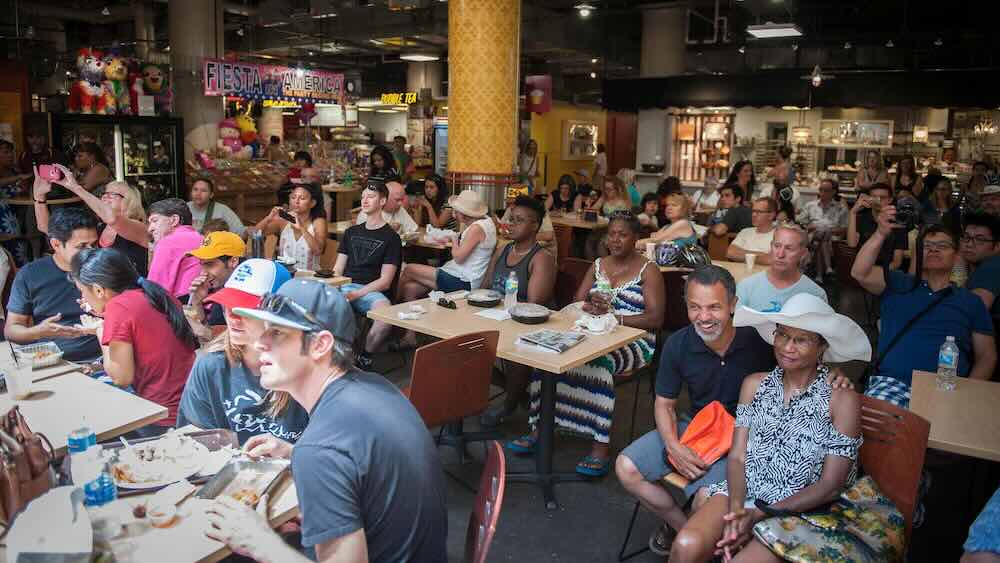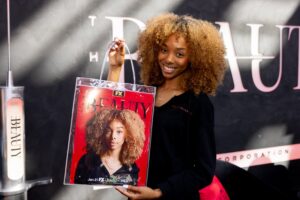


In Minneapolis, the city’s commitment to social inclusion was one of the factors that caused it to be named the happiest city in the U.S. and ranked as the 30th happiest city in the world by the Institute for Quality of Life. Photo courtesy Meet Minneapolis
For event organizers, “the fears are real” about the impact of the current U.S. administration’s anti-DEI policy, said Melvin Tennant, CAE, president & CEO of Meet Minneapolis. There are organizations, he said, “that have met here or are planning to meet here whose budgets are dependent upon federal dollars and have had to make some adjustments.”
Melvin Tennant
Despite the changing climate, “we’re not changing who we are and what we do,” Tennant told Convene. DEIA — diversity, equity, inclusion, and accessibility — remains “a core value of our organization and our community.” In February, Meet Minneapolis unveiled a 10-year destination master plan, which includes, as one of five high-level strategic goals, establishing the city as a “national leader in equity and reconciliation.”
The plan’s steering committee was chaired by the city’s mayor, Jacob Frey, and Tennant and Meet Minneapolis’s executive leadership team were members of the plan’s project team. The plan included input from 900 residents and stakeholders, which, Tennant said, “speaks to not only our organization’s commitment, but our community’s commitment to equity and inclusion.”
Meet Minneapolis already had an ongoing commitment to those values years before George Floyd was killed by police in May 2020 in Minneapolis, Tennant said. But his murder and the global protests that it sparked put the city in the spotlight as the center of what the plan called “a modern-day civil rights movement, comparable to the March on Selma, the Montgomery bus boycott.” That, “in my view, gave us a responsibility,” Tennant said, “to really look at that as a turning point in our growth as a city.”
Along with goals including creating a nationally competitive convention center district and adding vibrancy to its downtown and riverfront districts, the destination master plan calls for a “renewed focus on solidifying and preserving the cultural legacies that have shaped” the city. That will mean added investment in seven designated cultural districts throughout Minneapolis for the benefit of visitors and residents, including the 38th Street Cultural District, where Floyd was killed, and the Franklin Avenue East Cultural District, the heart of the city’s Native American population.
- Claim or renew your subscription to Convene.
- Want deep-dive insights on events delivered to your inbox? Sign up for our newsletters.
In 2022, Meet Minneapolis hired Ka Vang as its first vice president of equity and community impact, who works with internal staff as well as the larger community. The DMO has done a number of staff trainings, “familiarizing our team with the various cultural nuances that have impacted who we are as a destination,” Tennant said. For example, “there is a very strong Indigenous peoples presence in our area, and there is, sadly, a story of many of those communities being poorly treated — stories that have been suppressed or not told. But one of the reasons why we want to tell those stories, those untold narratives, is because we feel it’s really important for us to be authentic and to tell the truth.”
‘Making Sure That Everybody Is Included’
Engaging with communities in order to tell authentic stories is familiar ground for Melissa Cherry, senior vice president at Miles Partnership, where she leads the company’s consulting practice in developing inclusive marketing strategies for destinations.
Melissa Cherry
In prior roles, Cherry served as a marketing executive for both the Los Angeles Convention & Visitors Bureau and Choose Chicago, where she worked collaboratively with neighborhoods and cultural groups outside the tourism mainstream to bring attention, economic development, and visitors to the diverse experiences and resources that they offer.
“DEI has not been my ‘thing’ — it’s just been part of who I am,” Cherry said. “I’m a Black woman from Chicago. I’ve worked in the tourism space, specifically convention and visitors bureaus, but I came in through arts and culture. From my perspective, I’m not really focused on what you call [DEI]. I think that we get caught up in the lexicon sometimes — as DEI practitioners, we didn’t do ourselves a great service by not really articulating well what the work is.” What the work looks like, Cherry said, “is engaging with communities and making sure that everybody is included.” And that inclusion is “purposeful and meaningful, that you build trust, that you build some level of a relationship that’s not transactional or performative.”
“And while there are new challenges to navigate, we’ll continue to do the work,” Tennant said. It’s important not only from the standpoint of it being the right thing to do, he said, but because it has paid dividends to the city, “in terms of the way in which we’re able to better interact with our client base, that has become more diverse across different dimensions.” For example, one of the destination master plan’s goals is to become the No. 1 city for women’s sports, “another dimension of diversity,” he said. Diversity “is so built into our DNA, that it’s very natural for us to have these outcomes.”
The business case for diversity won’t change, Cherry said. “The facts are that the global population is going to continue to diversify from a cultural perspective and people consume products based on what resonates with them. And, in order for things to resonate, they have to be familiar and relevant.”
You can’t continue to talk to just one group of people, Cherry added. “There’s no growth in that. You have to continue to expand your customer base, but you can’t do that without thinking about it from a perspective of understanding the different complexities of your audience.”
Both Tennant and Cherry pointed out that we have faced anti-DEI environments before. Cherry said she finds opportunity in the current challenge. “I think, don’t waste a good crisis,” she said. “Crises help us evolve.” Part of that is becoming better about communicating what diversity, equity, and inclusion “looks like — and the outcomes from it.”
Barbara Palmer is Convene’s deputy editor.







